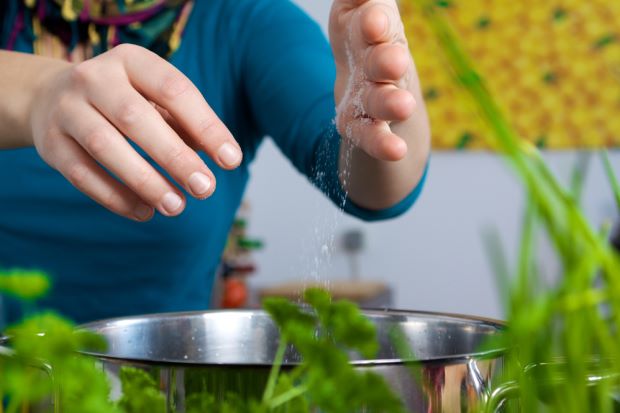|
Sodium is the main enemy for blood pressure and heart diseases. Although health organizations repeatedly warn individuals to cut down sodium intake and eat healthy food, most of us don’t care about it and end up having high BP. Reputed medical organizations and healthcare units recommend individuals to consume not more than 2,300 milligrams (mgs) of sodium per day with the ideal limit of not more than 1,500 mg per day for most adults. An average human’s sodium consumption is excessive due to these junk foods and processed goods that, even cutting back to no more than 2,400 milligrams a day will improve heart health and blood pressure significantly. While a common man feels that reducing salt usage in our everyday foods might reduce overall sodium levels, the main culprits are the processed, prepackaged and the restaurant foods that we eat often. Approximate amounts of sodium in a given amount of table salt include:
The sad thing here is that most individuals do not realize the huge quantities of sodium that they consume. For instance, one survey analyzed the awareness among 1000 individuals on their sodium consumption levels. One-thirds could not estimate how much sodium they ate and another 54% thought that they were eating less than 2,000 mg sodium per day.
Eating a well-balanced diet that includes ample fruits, vegetables, whole grains, proteins and low-fat dairy products limiting the consumption of red meat, sweets and sugar-sweetened beverages helps to not only limit sodium consumption but also the saturated fat and trans fat consumed contributing to an overall healthy body. Few Individuals are Exempted from Sodium Restriction The sodium limitation (1,500 mg) is not applicable for people who lose huge quantities of sodium in sweat (for instance, competitive athletes), workers exposed to major heat stress (foundry workers and fire fighters) or to those directed otherwise by healthcare providers. Individuals with medical conditions and special dietary needs must follow the instructions of their physician or dietitian. To know the exact quantity of sodium present in foods, it is advisable to check the Nutrition Facts label. If you are unaware of how to go about checking the label, please visit the website www.firsteatright.com for details. Some common sodium-related terms on food packages include:
So, eat your sodium in limited portions to maintain a healthy lifestyle and an overall healthy body that functions properly. Comments are closed.
|
AVOID FRAUD. EAT SMART.+91 7846 800 800
AuthorDietitian & Nutritionist Dr. Nafeesa Imteyaz. Archives
July 2024
Categories
All
Dr. Nafeesa's Blog @blogspot |
- Home
- Written Testimonials
- Consult
- Clinics
- Blogs
-
Diet & Nutrition
- Diabetes Reversal
- IVF IUI not needed for PCOS PCOD Infertility
-
Medical Nutrition
>
-
Disease & Conditions
>
- Infertility | PCOS
- Diabetes Mellitus
- Cholesterol
- Hypothyroid
- Kidney Problems
- Hypertension
- Cardiovascular Diseases
- Liver Diseases
- Gastro intestinal disorder
- Cancer
- Metabolic Disorders
- Orthopedic Disorders
- Eating Disorders
- Dietary Recall
- Weight Record Filled By Clients
- Online Payment Transaction Details
- Online Clients Weight Check Form
- Our Program Package Service Charges
- Weight Record 2017 Clients
- Measurements sent by Clients
- Terms & Conditions Of Payment
- Thanks. Your Form is Submitted
- Video Testimonials
- Lifestyle & Wellness
- Lifestyle & Wellness Blog
- Allergy & Intolerance
- Weight Loss / Gain
- Weight Loss / Slimming Blog
-
Disease & Conditions
>
- Life Cycle Nutrition >
- Sports Nutrition >
- Integrity in Nutrition
- Knowledge Centre
© COPYRIGHT 2022. ALL RIGHTS RESERVED. FRST HEALTHCARE PVT LTD.
Dr. Nafeesa Imteyaz of First Eat Right clinic, is the Best Dietitian Nutritionist in Bangalore. Best Dietitian Nutritionist in Pune. Best Dietitian Nutritionist in Hyderabad. Best Dietitian Nutritionist in Chennai. Best Dietitian Nutritionist in Mumbai. Best Dietitian Nutritionist in Delhi. Best Dietitian Nutritionist in Kolkata.


